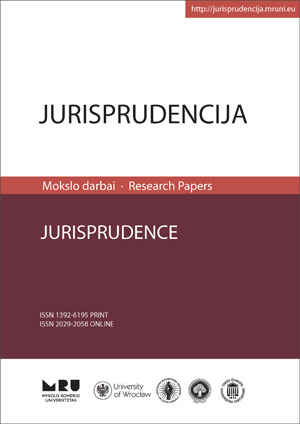TERMINUOTŲJŲ DARBO SUTARČIŲ SUDARYMO TEISĖTUMAS
LEGALITY OF CONCLUSION OF FIXED–TERM EMPLOYMENT CONTRACT IN LITHUANIA
Author(s): Ingrida Mačernytė PanomariovienėSubject(s): Law, Constitution, Jurisprudence
Published by: Mykolas Romeris University
Keywords: fixed-term contract; term of office; temporary employees; extension of employment contract; objective reason
Summary/Abstract: The character of fixed-term contracts in Lithuania, particularities of their formation and disadvantages of legal regulation is analyzed in this article. A number of legal constraints defined in the Lithuanian Labour Code, create preconditions to believe that employees are protected from the side of employers abusing fixed-term contracts. Lithuanian courts recognizes fixed-term contract as legitimate, if there are objective circumstances proving the impermanence of labour relations. Butthe Lithuanian laws also allow to make a fixed-term contract and even to renew such fixed–term employment relationships without the need or legitimate ground. Therefore it is considered that Lithuanian legal regulation violates not only International and European labour standards and other commitments, but also human rights at work.The first chapter clarifies the significance of fixed-term contracts and the need for such exclusive regulation. In the second chapter the legal bases of the making of fixedterm employment contracts provided in the Lithuanian Labour Code is critically analized, especially due to separated unreasonable “term of office” ground which does not describe the precarious employment needs or nature of fixed-term employment. Also other aspects are put under criticism such as fixed-term employment contracts with teachers or medical staff, while the license issued for a fixed-term or certification allows possibility to check the employee‘s skills and qualifications in the relevant requirements but is not associated with fixed-term employment in any way. The list of objective reasons applied in Lithuania seeking to make fixed-term contracts is submitted in the third part of the article.
Journal: Jurisprudencija
- Issue Year: 22/2015
- Issue No: 1
- Page Range: 48-63
- Page Count: 0
- Language: Lithuanian

